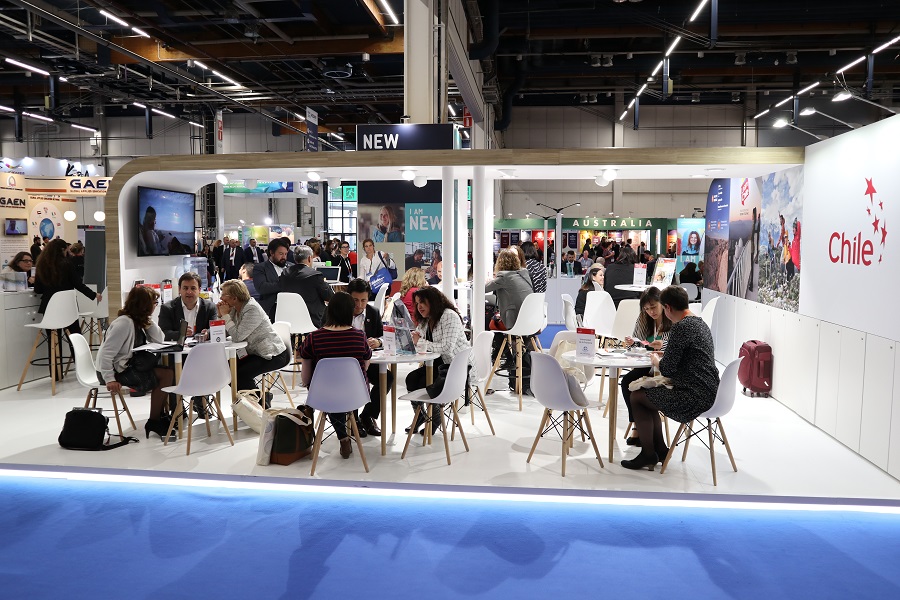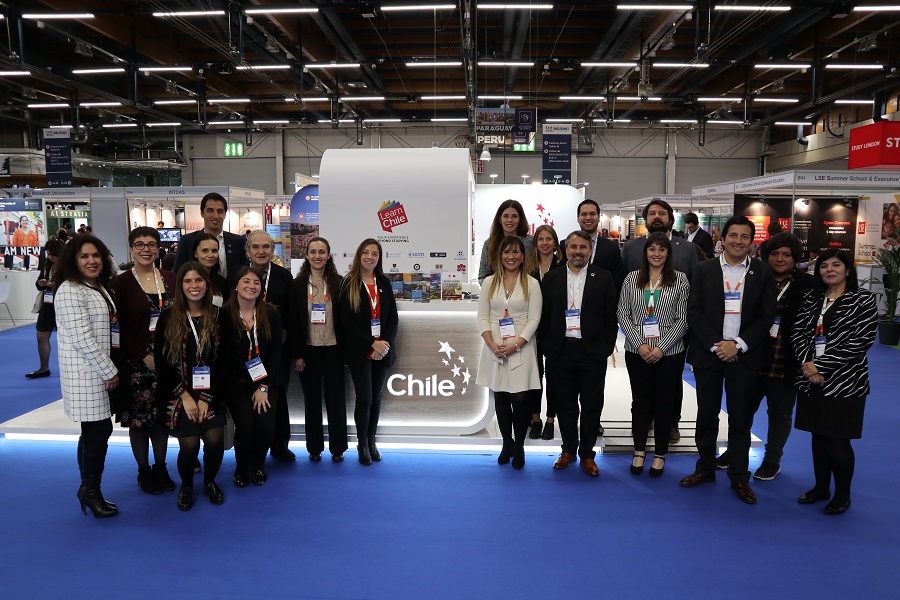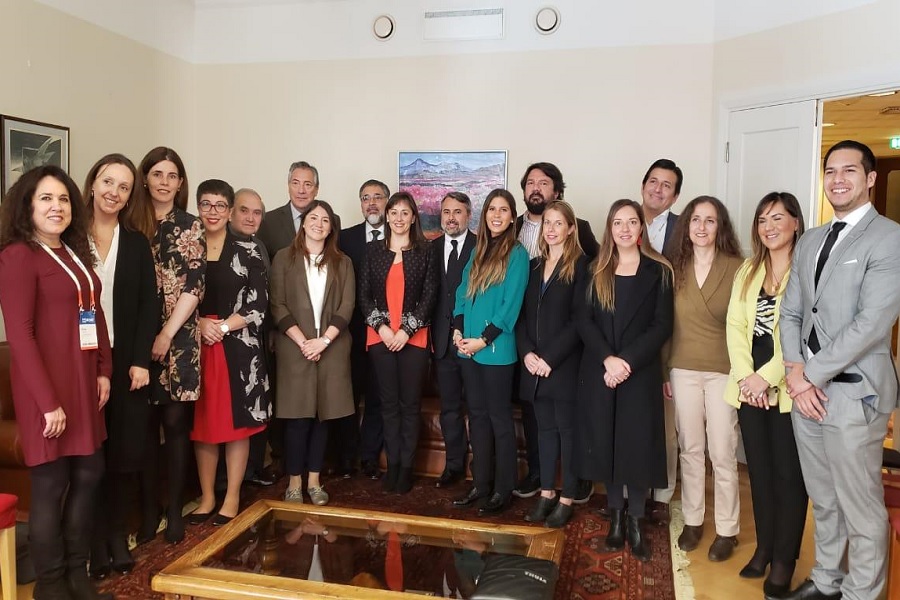|
The EAIE is the most important International Higher Education Conference and Exhibition in Europe, organised by the European Association for International Education. This year, it took place in Helsinki, Finland. During three days, the UFRO and other universities from different countries all over the world had the opportunity to show their new ways of academic cooperation, achieving more than 250 meetings. |
This is the sixth time that Chile had a national stand to display its educational offer at this International Higher Education Exhibition, the most popular one in Europe, which took place in Helsinki, Finland. Fourteen institutions for higher education of Learn Chile attended the event in representation of Chile, including the Universidad de La Frontera (UFRO), which managed to sign cooperation agreements with universities in several countries. For the students, safety, beauty and the diversity of landscapes are decisive factors when choosing a destination to study abroad. Europe is the continent where most exchange students come from, with about 40% of the total number of foreign students (almost 4,000 per year). Most of them come from Spain (12.4%), followed by France (11.4%) and Germany (6.5%). They mostly participate in exchange programs, special courses or spanish courses. Dr. Pamela Leal, who is in charge of Dissemination and International Contacts, pointed out that the EAIE is an important platform for visibility. “During this version of the event, we had more than twenty meetings with institutions from Europe, Asia and Latin America. Some examples are the WSB University in Poznan (Poland), Haute Ecole Léonard De Vinci (France), Global Education Park (Finland), BSDU Jaipur (India), Kanagawa University (Japan), Ghent University (Belgium), Banat University of Agricultural Sciences and Veterinary Medicine (Romania), and so on,” she commented. These are only some of the partners interested in doing some kind of cooperation with the UFRO. In this context, Dr. Leal added: “The issues addressed were student and academic mobility through the Erasmus+ program, and joint research projects in the fields of agriculture, business, engineering and social sciences. In the field of postgraduate studies, the main interest focused on developing co-tutorship agreements and postdoctoral exchange. International relations are based on trust, mutual cooperative work, bidirectionality and sustainable cooperation. Therefore, it is extremely important to attend this kind of events.” INTERNATIONAL RELATIONS During the EAIE, representatives of Spanish and French educational institutions scheduled the most meetings with representatives of the Chilean peers, although relatively new markets, such as Finland, Turkey and India, also were highly interested. Roberto Ubilla Quevedo, the Ambassador of Chile in Finland and Estonia, also received the representatives of the Chilean universities that attended the event at the premises of the Embassy of Chile in Finland. The objective of this meeting was to develop networking activities in order to establish ties of exchange and cooperation. FINLAND AS A REFERENCE The Finnish education system is known to be the best in the western world. During EAIE, the Conference on Higher Education in Finland took place, where the main characteristics of the Finnish education system were presented. One of them is that most undergraduate programs are taught in English, as well as all postgraduate programs. Anita Lehikoinen of the Finnish Ministry of Education commented that there is a program of the Finnish government which has the objective that, until 2030, 50% of the young adults in Finland achieve a university degree. Another result she presented was that more than 50% of the investment in research and development (R&D) in this nordic country comes from the industry (most funds come from the Nokia Foundation). Since the EAIE was held in Finland, great student exchange opportunities opened up for the Chilean delegation. An instance that began to take shape during a reception by Mr. Roberto Ubilla, the Ambassador of Chile in Finland, at his residence, which was also attended by authorities from the Finnish Ministry of Education and representatives of universities from all over Europe in order to welcome the delegation of Learn Chile. “During the meetings we saw how Chile consolidates itself as the starting point for European universities to work in the Southern Cone. European students enrich the academic mobility programs developed in Chile and offer the possibility for Chilean students and academics to establish academic, social and research networks that can be developed in the medium and long term, with all the national benefits that come with it," Marcos Avilez, the director of Learn Chile, pointed out. PARTICIPATING CHILEAN UNIVERSITIES 1. Duoc UC
Written by: UFRO Communications Office
|







